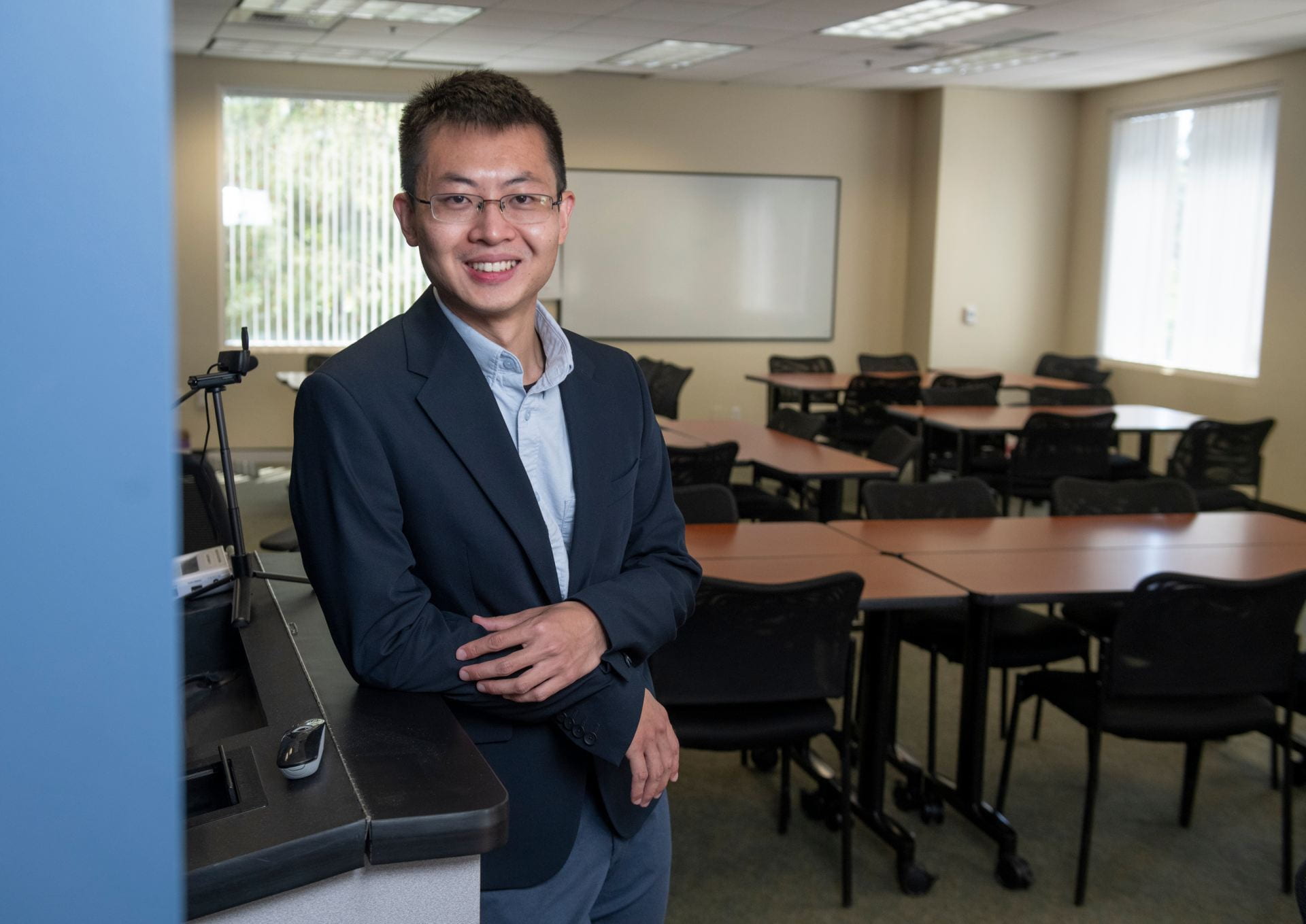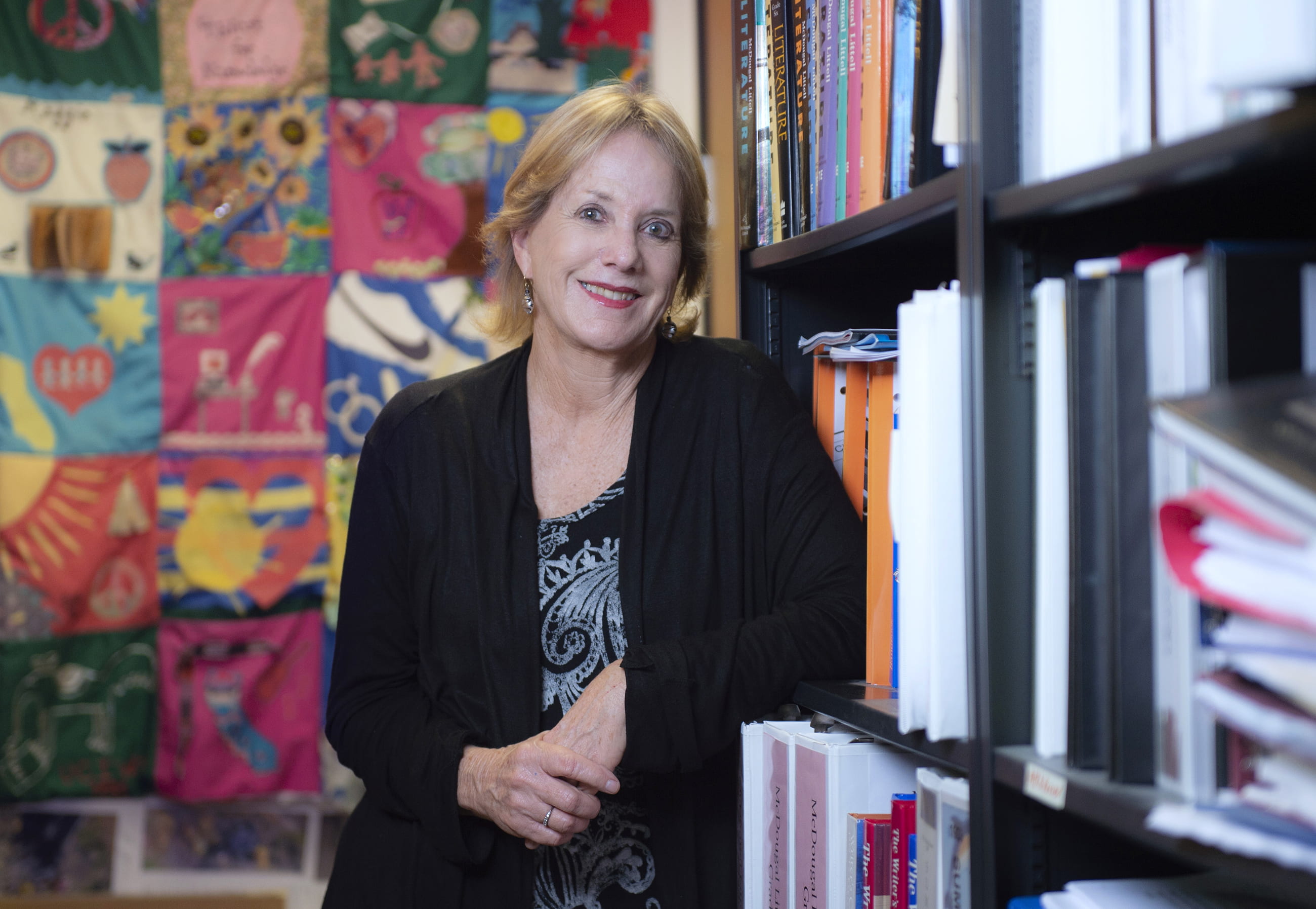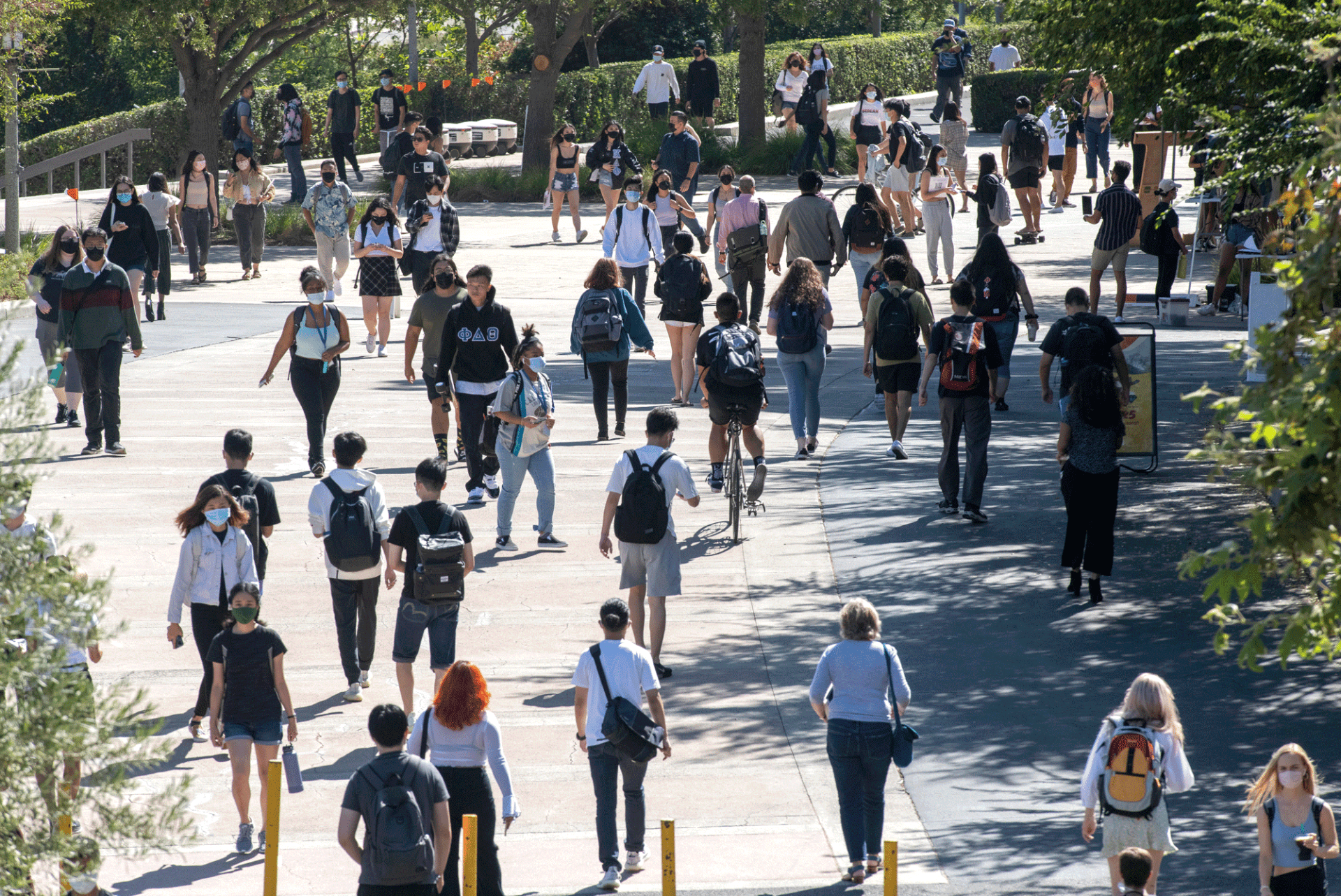UCI doctoral candidate dissects an age-old question: math or language?
Sirui Wan examines when students start to specialize and how that affects their futures

Irvine, Calif., June 2, 2022 — When do students begin to think that one has to be either a “math person” or a “language person?” That’s the primary question posed by University of California, Irvine School of Education doctoral candidate Sirui Wan in a recent publication with the same title in the journal Psychological Bulletin.
Wan and his colleagues analyzed data involving 142 independent samples across the world, featuring almost 211,000 students from 16 countries and regions. Their work revealed that students may become more likely to consider themselves either a “math person” or a “reading person” as they progress through the K-12 school years, often resulting in a noticeable demonstration of subject preference by high school.
“Although one can have high performance in both math and reading, and thus be objectively ‘good at’ both domains, students start to think they are a ‘math person’ or a ‘reading person,’” said Wan. “This can have a dark side, because students might disengage from subjects that they perceive as their relative weakness, even though they are actually quite good at these subjects relative to other students.”
As a result, a student who identifies as a “reading person” might avoid pursing math-related educational and career paths.
Wan’s inspiration to study factors that influence people’s life choices, such as which academic major or career path to pursue, came as he himself felt confused about what he wanted to do with his life during his college years. While volunteering at a counseling center, Wan witnessed several students “struggling to find their directions” and becoming unmotivated and depressed as a result.
These findings suggest parents could think about whether they want their children to specialize early or explore what could be a more diverse academic potential. According to Wan, “parents might not want their children – especially at a young age – to discount their skills in one academic domain merely because they are better at something else. After all, many desirable educational and career paths require high levels of competence across multiple academic domains.”
Wan said it is also helpful for teachers to be aware of students’ inclinations to look for and exaggerate potential discrepancies between their relative strengths and weaknesses across academic subjects: “Teachers might counter this tendency by pointing out to their students their potential to succeed across subjects and avoid labeling students as a ‘math’ or ‘reading’ person, especially in the early school years, because this can lead students to discount other academic skills.”
“It is important to understand the influences on children’s developing self-perceptions of academic abilities because these self-concepts, in turn, influence young people’s engagement in their academic courses and their career aspirations,” said Jacquelynne Eccles, UCI Distinguished Professor of education and one of Wan’s co-advisors with Drew Bailey, associate professor of education. “Sirui’s project illustrates the importance of internal comparisons students make as they decide whether they are better at math- or literacy-based courses and careers. By high school, students in the U.S. and other Western countries tend to focus on the academic subject they think they are best at, even if they are doing very well in both math and literacy courses. This differential subject preference may limit students’ options when they get to college and as they move into the labor market.”
Wan’s research was funded by a UCI Graduate Dean’s Dissertation fellowship, a Division C Graduate Student Research Excellence Award from the American Educational Research Association and a Dissertation Research Award from the American Psychological Association. This summer, he will start a postdoctoral position at the University of Wisconsin-Madison, working with Judith Harackiewicz, Paul Pintrich Professor of Psychology, on a project aimed to broaden the participation of first-generation and underrepresented minority students in biomedical fields.
About UCI’s Brilliant Future campaign: Publicly launched on Oct. 4, 2019, the Brilliant Future campaign aims to raise awareness and support for UCI. By engaging 75,000 alumni and garnering $2 billion in philanthropic investment, UCI seeks to reach new heights of excellence in student success, health and wellness, research and more. The School of Education plays a vital role in the success of the campaign. Learn more at https://brilliantfuture.uci.edu/school-of-education/.
About the University of California, Irvine: Founded in 1965, UCI is the youngest member of the prestigious Association of American Universities and is ranked among the nation’s top 10 public universities by U.S. News & World Report. The campus has produced five Nobel laureates and is known for its academic achievement, premier research, innovation and anteater mascot. Led by Chancellor Howard Gillman, UCI has more than 36,000 students and offers 224 degree programs. It’s located in one of the world’s safest and most economically vibrant communities and is Orange County’s second-largest employer, contributing $7 billion annually to the local economy and $8 billion statewide. For more on UCI, visit www.uci.edu.
Media access: Radio programs/stations may, for a fee, use an on-campus ISDN line to interview UCI faculty and experts, subject to availability and university approval. For more UCI news, visit news.uci.edu. Additional resources for journalists may be found at communications.uci.edu/for-journalists.


